Jacob Cramer, Ph.D.

Dr. Cramer is the Analysis Administrator for the Tucson Police Department (TPD), and has more than 9 years of experience in social science research and data analysis. At TPD, Dr. Cramer leads the Analysis Division and is responsible for advancing the Department's strategy of effective policing through policy informed by research, advanced applications of data and analysis, and strong community relations. Before joining TPD, he served as project manager for the NIJ Evaluation of the OVC Vision 21: Linking Systems of Care for Children and Youth State Demonstration Project at ICF. Previously, Dr. Cramer consulted for the International Organization for Migration as Social Network Consultant On Violent Extremism, where he evaluated a countering violent extremism (CVE) network in Niger. He has also consulted for USAID-OTI as international expert on social network analysis, where he designed and implemented a social network study of violent extremism in northern Mali. Dr. Cramer has extensive experience conducting data analysis related to violence, crime, and extremism, and has particular interests in social network analyses and quantitative methods. He received his Ph.D., and M.A., from the University of Arizona, and received his B.A., from Syracuse University.
Kyle McLean

Kyle McLean is an Assistant Professor in the College of Criminology and Criminal Justice at Florida State University. He obtained his Ph.D. in Criminology and Criminal Justice from the University of South Carolina, writing a dissertation on how individuals evaluate outcome fairness in police-citizen interactions. His policing research focuses on police-community relations, police training, and evaluations of policing programs. In graduate school he worked on an NIJ-funded evaluation of a social interaction training program for police officers in the Tucson, AZ and Fayetteville, NC police departments. The study was the first of its kind to use random assignment to evaluate the effects of a low-intensity, high-repetition social interaction training program in police departments. In addition to this project, he also worked on an evaluation of the Greenville, SC police department’s body-worn camera project. As an assistant professor, he has begun to develop new projects including a study of officer perceptions of body-worn camera footage of use of force incidents that includes a component evaluating a use of force training program.
Cecilia Ashe

Chief Cecilia Ashe is a 27-year veteran of law enforcement who was appointed as Chief of Police for the City of Milford Police Department, DE in February 2023. Prior to her appointment, she worked at Wilmington Police Department in Wilmington, DE for approximately 17 years, where she was assigned as the Inspector of Operations. Chief Ashe holds a Bachelor of Science degree in Criminal Justice from Wilmington University and is a graduate of the Senior Management Institute for Policing, Session 70. She was instrumental in the development and implementation of the Wilmington Police Department’s Real Time Crime Center, which was the first in the State of Delaware. Additionally, she developed a Crime Gun Intelligence Center in partnership with ATF that focuses on NIBIN lead investigations and has resulted in hundreds of leads in firearms investigations.
Based on her work in this field, Chief Ashe was accepted into the National Institute of Justice’s Law Enforcement Advancing Data and Science (LEADS) Program in 2019. She has most recently been recognized for her leadership, oversight and strategic planning while implementing Group Violence Intervention in Wilmington which was plagued with gun violence. This resulted in an over 58% reduction in homicides and nearly 30% reduction in shooting incidents, while simultaneously reducing citizen complaints against officer by over 22% by the end of 2022 within the City of Wilmington.
The NIJ LEADS program will facilitate Chief Ashe in advancing her knowledge of evidence-based research in law enforcement, which she will take back to her department to further its commitment to integrating research and science into policies and practices.
Cory P. Haberman, Ph.D.

Dr. Cory Haberman is an assistant professor in the School of Criminal Justice and Director of the Institute of Crime Science at the University of Cincinnati. Dr. Haberman has two primary research interests. First, Dr. Haberman’s research focuses on using quantitative methods to understand spatial-temporal crime patterns. Second, Dr. Haberman’s research uses mixed-methods to advance evidence-based policing with particular interests in crime analysis, hot spots policing, and focused deterrence. Dr. Haberman’s has worked with police agencies across the country on implementing innovative strategies, such as hot spots policing or focused deterrence. He is also currently working on projects related to the use of virtual reality for law enforcement training. Dr. Haberman’s work has been published in leading criminology and criminal justice journals, such as Criminology, Crime and Delinquency, Journal of Experimental Criminology, and Journal of Research in Crime and Delinquency.
Justin Nix

I received my PhD in Criminology and Criminal Justice from the University of South Carolina in 2015. Currently, I am an assistant professor in the School of Criminology and Criminal Justice at the University of Nebraska Omaha, where I coordinate our MA program and teach undergraduate and graduate-level classes on policing. My research centers on policing with emphases on procedural justice, legitimacy, and officer-involved shootings. To date, I have published over thirty peer-reviewed journal articles, book chapters, and book reviews related to these and similar topics. I am thrilled to have been selected for the inaugural class of LEADS Academics, because as a criminologist, I believe it is important to convey research findings to people outside of academia – including the police and the general public. I look forward to networking and potentially collaborating with the other LEADS Academics and Scholars to advance policing through rigorous science.
Natalie Todak

Dr. Natalie Todak is an Associate Professor of Criminal Justice at the University of Alabama at Birmingham (UAB). She has a Ph.D. in Criminology and Criminal Justice from Arizona State University (ASU). She uses qualitative and mixed methods research to study critical issues in policing, with a current focus on police culture. She is an alumnus of the National Institute of Justice LEADS Program, in recognition of her collaborative work with agencies to further evidence-based policing. She was also awarded the Early Career Award from the American Society of Criminology Division of Policing and the John R. Hepburn Alumni Scholar Award from ASU. She has published in leading journals such as Criminology, Criminology and Public Policy, Crime and Delinquency, and Police Quarterly.
John W. Koch
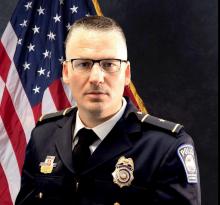
Deputy Chief John Koch joined the Colorado Springs Police Department in 2002, where he served as a patrol officer for the first five years of his career. He then transferred to detective positions in the Crimes Against Children Unit (2007-2010) and Homicide Unit (2010-2013). He was promoted to sergeant in 2013, serving as a patrol supervisor (2013-2014), detective sergeant in the Special Victims Section (2014-2017), and Internal Affairs sergeant (2018). Promoted to lieutenant in 2018, he was a patrol watch commander in the Sand Creek Division (2018-2019) and the Strategic Information Center lieutenant in Metro VNI (2019-2020). Promoted to commander in 2020, he led the Gold Hill Division (2020-2022), Professional Standards Division (2022-2023), and Management Services Division (2023-2025).
In 2025, Deputy Chief Koch was promoted to his current position leading the Investigations & Special Operations Bureau. In this role, he oversees all criminal investigation, tactical, and crime analysis functions of CSPD.
Deputy Chief Koch holds a Bachelor of Science degree in Computer Information Systems from the University of Northern Colorado, and a Master of Public Administration degree from the University of Colorado. He is also a graduate of the FBI National Academy – Session 286.
David Naoroz

After 26 plus years with the Richmond (VA) Police Department, David Naoroz retired from sworn service with the City of Richmond and has recently been appointed as Senior Policy Advisor to the Virginia Department of Criminal Justice Services. Previously, he has served in numerous leadership roles within the Richmond Police Department, a 15-year member of the SWAT Team, and a use of force instructor for the academy responsible for designing the training currently employed by the department. His research interests include recruitment, training, officer wellness, and police technology. Mr. Naoroz is a graduate of the University of Richmond.
Matt Jones
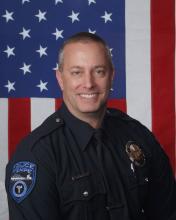
Detective Matt Jones is presently assigned to the homicide unit within the Tempe Police Department and has worked in law enforcement for the past 19 years. Det Jones has completed assignments in Patrol, Robbery, the Criminal Apprehension and Surveillance Team, and the U.S. Marshal’s Violent Offender Task Force. Det Jones has obtained a B.A. degree in Political Science/Criminal Justice and a M.A. degree in Forensic Psychology. Det Jones’ primary interests and expertise revolve around science-based interviewing techniques for local law enforcement. Since 2015, Det Jones has been collaborating with research psychologists involved with science-based interviewing areas such as rapport building, information elicitation, cognitive interviewing, eyewitness memory, addressing resistance and credibility assessment. Det Jones participates both in the science-based interviewing research and training, and recently developed of a science-based interviewing 5-day curriculum created specifically for local law enforcement to be taught by law enforcement.
Michael W. Weissberg

Retired from Miccosukee Police Department as a Sergeant and Shift Commander in September 2023 and took a position as a detective with the State Police DFS (Florida). He serves as an instructor, Field Training Officer, and Honor Guard Member. He is a Certified Fraud Investigator by the International Association of Special Investigation Units and Certified Insurance Fraud Investigator (CIFI). He is also an adjunct instructor at the Florida State Fire College.
In 2021 he was awarded his Doctorate in Leadership from the American College of Education in Indiana.
Christian Peterson

Christian R. Peterson is the Police Data Research Manager at the Portland Police Bureau (PPB), where he oversees a team of analysts and provides executive decision support grounded in evidence-based practices. He has earned multiple national awards for public safety innovation, recognizing his leadership in developing cutting-edge analytical systems, gun violence and hotspot policing tools, and community-focused policing strategies, and has advised agencies in the U.S. and internationally on data governance, technology integration, and sustainable data-informed practices. A National Institute of Justice LEADS Scholar and 2024 inductee into the Evidence-Based Policing Hall of Fame, Peterson has published in leading policing journals and frequently presents at national and international conferences on topics such as procedural justice, online reporting, and crime reduction strategies. He holds bachelor’s and master’s degrees in criminology and criminal justice and a graduate certificate in GIS from Portland State University, where he has also taught crime mapping and supported applied research on public safety policy.
Kathryn Greenbeck

Kathryn Greenbeck has served with the Baltimore County Police Department since 2001. She is currently a Shift Commander at one of the Department’s largest patrol precincts. In her tenure with the Baltimore County PD, she has been assigned to several patrol precincts, the Hostage Negotiation Team, the mobile technology unit, and the training academy. Lt. Greenbeck holds a Bachelor of Science degree from the University of Maryland. In addition, her Master of Science degree in Criminal Justice from the University of Baltimore culminated in her graduate thesis, titled “Pre-Employment and Background Variables as Predictors of Success in the Police Academy.” She also contributed to a publication on correlates of police academy success. Lt. Greenbeck’s research interests include integration of evidence-based concepts into police training and education, the use of data to improve patrol operational procedures, the effects of “procedural justice” on various police interactions, and police/mental health collaborations.
Chase D. Wetherington, Ph.D.
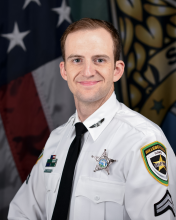
Dr. Chase Wetherington has been a sworn law enforcement in Tampa, FL since 2012. He currently holds the rank of Corporal with the Hillsborough County Sheriff’s Office, where he has served in a variety of positions throughout the agency and is currently assigned to the District II Investigations and Intelligence Unit. He has a Bachelor of Arts Degree from the University of South Florida, Master of Science Degree in Criminal Justice from Saint Leo University, and Ph.D. degree in Criminal Justice from Walden University, where he now serves as a contributing faculty member. The focus of much of his research and Ph.D. dissertation focuses on law enforcement officer characteristics, including formal academic education levels, veteran status and age, and their impact on disciplinary issues and performance. He is hoping to work with other LEADS Scholars to illustrate how research and science can improve law enforcement today and in the future.
Eric Dlugolenski
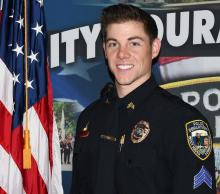
Eric Dlugolenski began his LEADS Scholarship as a practitioner — serving the West Haven Police Department, CT. During his LEADS tenure, he completed his Ph.D. in Criminal Justice at the University of New Haven, CT. In the fall of 2020, he accepted a position as an Assistant Professor with the Department of Criminology and Criminal Justice at Central Connecticut State University. His role in the program has transitioned accordingly, and he is now a LEADS Academic.
Prior to joining academia, he served as a police sergeant. He spent nine years with the department and held numerous roles and responsibilities. His last assignment was Sergeant of the Professional Standards Division. As an administrator, he drafted and updated policies and procedures for the police department, oversaw internal affairs, maintained state accreditation/compliance standards, supervised crime analysts, served as the grant coordinator for the department, and engaged in research and development. Prior to leaving the West Haven Police Department, he engaged in the national conversation of policing in the 21st century as a National Police Foundation (NPF) Fellow.
His research interests include procedural justice, police operational strategies, officer health and wellness, police culture, and police management. His dissertation research looks at the joint effects of order-maintenance policing and procedural justice delivered via foot patrols. His outcomes of interest include perceived risk of victimization, police legitimacy, disorder, and collective efficacy.
Mike Thomas

Lieutenant Mike Thomas is a 16-year veteran of the Norfolk Police Department and the current Officer in Charge of the department’s Special Crimes Unit. Currently, Lt. Thomas sits on several multi-disciplinary teams including the Norfolk Criminal Justice System’s Evidence Based Decision Making Group, Norfolk Police Department Evidence Based Decision Making Group, Norfolk Sexual Assault and Domestic Assault Response Team, and the Norfolk Family Justice Center Workgroup. Lt. Thomas holds a Bachelor of Arts in Criminal Justice from Saint Leo University, a Master of Science in Criminal Justice from Saint Leo University, and is a Doctoral Candidate at Regent University studying Organizational Leadership and Human Resource Development. Lt. Thomas is an instructor for IACP’s Leadership in Police Organizations course and is a Trilogy Award recipient after attending FBI-LEEDA’s Supervisor Leadership Institute, Command Leadership Institute, and Executive Leadership Institute. He has conducted multiple research projects within the Norfolk Police Department related to servant leadership, emotional intelligence, police leader burnout, and learning organizations. Working with the LEADS program, Lt. Thomas hopes to learn how to use evidence-based research methods to improve organizational climate and leadership.
Rich Johnston

Rich Johnston recently began a partnership with BetaGov to conduct a randomized controlled trial (RCT) in the Barrie Police Service, making it one of the first agencies in Canada to run its own RCT. Rich's efforts were integral in expanding the LEADS program internationally. He holds a master's in leadership studies from the University of Guelph.
Daniel Wagner

C. Daniel Wagner has served the City of Cambridge, MA as a police officer since 1998. He currently holds the rank of Deputy Superintendent and is the Commanding Officer of the Procedural Justice Section, where he leads the Crime Analysis Unit and the Office of Rights and Liberties--a new unit to ensure the Department adheres to the principles of procedural justice and legitimacy as well as fair and impartial policing. Deputy Superintendent Wagner works with passion to reduce crime and social harm, improve police-community relations, and advance policing. He has applied his keen interest in research, data-analytics, and community policing to develop successful crime prevention strategies. He is the founding vice president of the American Society of Evidence-Based Policing, serves on the Bureau of Justice Assistance Criminal Justice Technology Forecasting Group, and is a Policing Fellow at the Police Foundation in Washington DC. He holds a Master's in Public Administration from the John F. Kennedy School of Government at Harvard University.
Luke Bonkiewicz
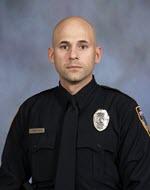
Officer Bonkiewicz is a police officer with fifteen years of experience in patrol, recruitment, pre-employment interviewing, CALEA accreditation, and background investigations, as well as quantitative research methods and data analysis. He has analyzed data on racial disparities in traffic stops, driver's license suspension programs, gang intervention initiatives, assault on officer incidents, and use of control incidents. He has also published peer-reviewed research on patrol officer productivity, police response to mental health calls for service, violence in drug markets, and the role of police in disasters and evacuations. In his private time, Bonkiewicz is an intake specialist for the Lamplighter Project, an organization that encourages whistleblowing activity in law enforcement by removing barriers to reporting, preventing retaliation, and elevating ethical officers.
David Dalton
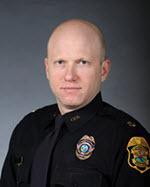
Major David Dalton has nearly 25 years of law enforcement experience with both the Auburndale (Florida) Police Department and the Clearwater Police Department. He began his career with the Clearwater Police Department in 1996 and is currently assigned as the Support Services Division Commander, with oversight of numerous functions including: personnel, training, budget/fiscal management, property/evidence, and communications. Major Dalton possesses extensive experience in investigations, training, recruitment, policy development, accreditation, community/neighborhood policing, and technology implementation. Major Dalton has been recognized for his commitment to research driven principles, civic engagement, and community partnerships. He maintains strong relationships with research institutions, including the University of South Florida, Department of Criminology. Major Dalton holds both a bachelor's degree in Criminal Justice and a master's degree in Criminal Justice Administration from the University of South Florida.
Stan MacClellan

Stan is responsible for the Strategic Planning and Analytics Reporting branch of the Durham Regional Police Service, which includes oversight of the department's in-service training. He has worked for two of Ontario's larger police services and has expertise across a broad range of policing issues. He is working towards his doctorate in Policing and Security at Charles Sturt University and holds a bachelor's from St. Francis Xavier University and an MBA from Queen's University. He is an executive member of the Canadian Society of Evidence-Based Policing (CAN-SEBP).
Jason Bruder
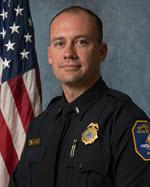
Chief Jason Bruder has served the City of Charleston since 2002. He recently worked with City Council and the Mayor's Office to complete an external audit of police racial bias. He previously commanded the West Ashley Patrol Team and supervised the Field Intelligence Unit and School Security Response Teams. Lieutenant Bruder also works on numerous process improvements to ensure quality and efficient work by officers. He holds a bachelor's degree in computer science, a master's degree in homeland security management from Long Island University, and is a graduate of the 62nd session of the Administrative Officers Management Program at North Carolina State University. Chief Bruder completed the FBI’s National Academy, 279th session. Working with LEADS, he hopes to improve the use of police data to improve patrol strategies and officer training.
Matthew Barter
Sergeant Matthew Barter has been with the Manchester Police Department for 10 years and is currently assigned to the patrol division. He was previously a Task Force Officer with the Bureau of Alcohol, Tobacco, Firearms, and Explosives and Crime Analyst with the Crime Analysis Unit. Detective Barter has implemented numerous evidence-based policing practices within the agency, to include a data-driven hotspot policing concept and violent crime reduction initiatives. Recently, Detective Barter worked to integrate National Integrated Ballistic Information Network (NIBIN) technology and gun crime intelligence into strategic planning processes with law enforcement partners. He holds a master's degree and bachelor's degree in criminal justice and is interested in pursuing research regarding police patrol patterns as well as place-based crime. Detective Barter also serves as a SWAT Officer and leads the Tactical Emergency Medical Support Unit.
Emma O'Flanagan

Lieutenant Emma O'Flanagan is a 12-year veteran of the Rutgers University Police Department (RUPD), and has served in various positions throughout the police department. Lieutenant O'Flanagan is currently assigned to the Professional Standards Division, responsible for research and planning, training, compliance, accreditation, policy development, internal affairs investigations, and crime analysis. Lieutenant O'Flanagan holds a bachelor's and master's degree in Criminal Justice from Rutgers University and is a recent graduate of the NJSACOP Command and Leadership Academy. Lieutenant O'Flanagan has a wide variety of research interests including practical applications of data analysis, officer wellness, hiring and retention of officers, PTSD, and women in law enforcement.
Tara Calabro

Deputy Inspector Tara Calabro has proudly served as a police officer with the New York City Police Department for 19 years. She currently serves as the Commanding Officer of the Enterprise Risk Management Division in the Professional Standards Bureau. She has previously managed and supported collaborative research projects and data analysis to inform policy recommendations, initiatives and program development under the Chief of Strategic Initiatives. During her tenure with the NYPD, Deputy Inspector Calabro has held patrol assignments, supervised a precinct crime analysis unit, worked as an analyst for the Real Time Crime Center, and lead the Information Technology Bureau's Program Management Office.
Chris Vallejo

Chris G. Vallejo brings over 30 years of distinguished law enforcement experience to his role as Chief of Police in Topeka, Kansas. Appointed in November 2024 following a nationwide search, Vallejo officially began his tenure in January 2025.
Before joining the Topeka Police Department, Chief Vallejo built a distinguished career with the Austin Police Department, rising through the ranks to the position of senior commander. In that role, he oversaw the Special Victims Division and led several forward-thinking initiatives, including reforms in responses to sexual assault investigations, and recruitment and training. His leadership was instrumental in ushering in Austin’s most diverse cadet class and in establishing the department’s first Chief Data Officer position—an effort aimed at strengthening the link between data-driven strategies and meaningful community engagement.
A lifelong believer in evidence-based methods, Vallejo earned a Master’s in Criminal Justice and a Bachelor’s in Applied Arts and Science, with concentrations in constitutional law and political science. He is a graduate of the Police Executive Research Forum’s Senior Management Institute, NIJ LEADS Scholar, Future Policing Institute Fellow, and a National Policing Institute Executive Fellow where he advises nationally on key law enforcement initiatives.
Since becoming Chief, Vallejo has outlined a clear roadmap for TPD—short-, mid-, and long-term goals that focus on command staff reorganization, boundary and patrol optimization, enhanced media relations, officer wellness, and aggressive recruitment efforts. He launched the “PACT—Police and Community Together” initiative to foster trust and collaboration between citizens and officers in an effort to reduce violent crime.
Vallejo is widely respected for his commitment to diversity, accountability, and innovation. His numerous awards include Meritorious Unit Citations and Patrol Unit of the Year honors—earned during his time in Austin
A veteran with roots in the Marines, Vallejo emphasizes integrity, strategic innovation, and community-centered policing. He is focused on reducing violent crime, strengthening public trust, and ensuring a safer future for all Topekans.


